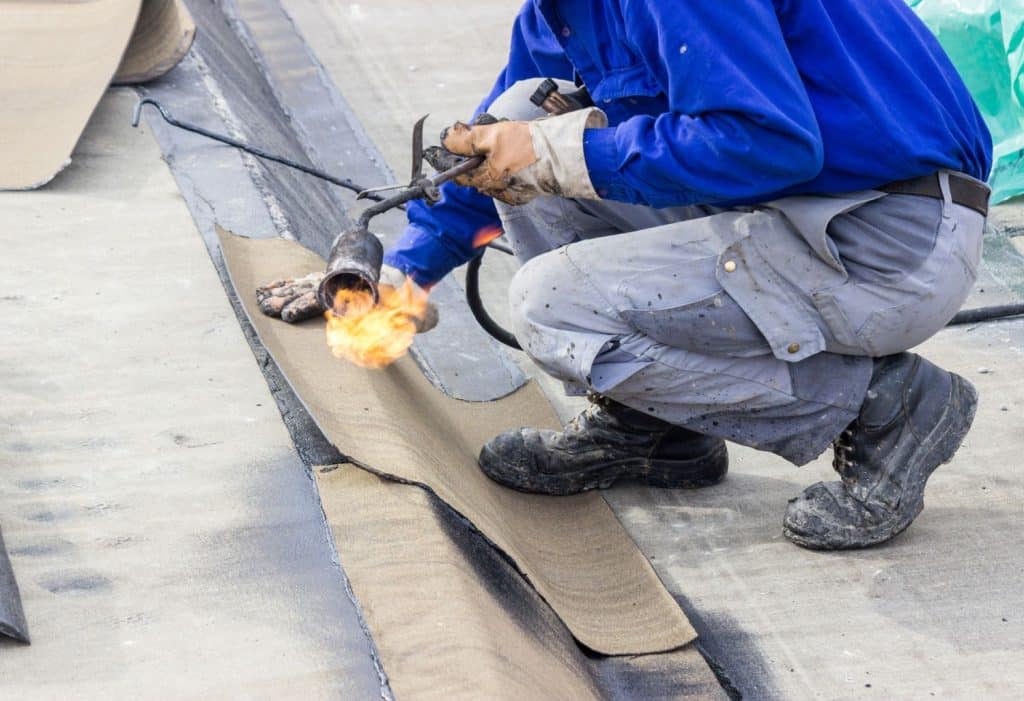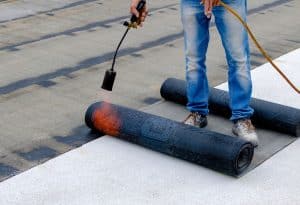Estimated reading time: 6 minutes
Key Takeaways
- Regular waterproofing maintenance extends building lifespan and prevents costly structural damage
- Seasonal inspections help detect waterproofing failures early
- Different building areas require specific maintenance approaches
- Professional assessment establishes baseline conditions for effective planning
- Documentation creates valuable historical data for future maintenance
Introduction: Why Waterproofing Maintenance Matters
For commercial property owners in Gauteng, protecting your building against water damage is essential for business continuity and asset preservation. Water infiltration can cause structural deterioration, equipment damage, and create hazardous conditions for occupants.
Developing a strategic waterproofing maintenance schedule is far more cost-effective than reactive repairs. At TT Waterproofing, we’ve seen how planned maintenance can extend waterproofing systems’ lifespans by up to 50% while preventing failures that could cost businesses millions in repairs and lost revenue.
Assessing Your Building’s Waterproofing Needs
Understanding Your Building’s Vulnerabilities
Every commercial building has unique waterproofing challenges based on its design, age, and location. Before developing a maintenance schedule, assess your property’s specific vulnerabilities:
- Building Age: Older buildings often have different waterproofing systems requiring specialised maintenance.
- Climate Exposure: Gauteng’s intense summer storms create specific waterproofing challenges.
- Previous Water Issues: Areas with historical water problems need more frequent monitoring.
- Critical Areas: Identify zones where water damage would cause maximum business disruption.
Professional Baseline Inspection
Engage waterproofing specialists to conduct a comprehensive baseline inspection that includes:
- Roof examination of membranes, flashings, and drainage systems
- Façade inspection for cracks and deteriorated sealants
- Foundation waterproofing evaluation
- Assessment of building penetrations and drainage functionality
This professional assessment will form the foundation of your customised maintenance schedule.
Creating a Seasonal Maintenance Calendar
Pre-Rainy Season Preparation (August-September)
Before Gauteng’s primary rainy season begins, schedule these critical tasks:
- Roof Membrane Inspection: Check for tears or separations in waterproofing membranes.
- Drainage System Clearing: Ensure all gutters and drains are free from debris.
- Sealant Evaluation: Inspect and replace deteriorated sealants around windows and doors.
- Expansion Joint Review: Check all expansion joints for proper sealing.
Post-Rainy Season Assessment (April-May)
After the rainy season concludes:
- Leak Investigation: Document and address any leaks that occurred.
- Ponding Assessment: Identify areas where water accumulated.
- Interior Inspection: Check for water stains or mould growth.
- Waterproofing Repairs: Address identified issues while weather is favourable.
Quarterly General Inspections
Implement quarterly general inspections that include:
- Visual assessment of previously repaired areas
- Checking sealants around high-risk penetrations
- Inspecting drainage systems for blockages
- Monitoring known problem areas
Area-Specific Maintenance Requirements
Roof Waterproofing Maintenance
Your building’s roof requires specialised attention:
- Monthly Visual Inspections: Quick checks after extreme weather
- Bi-annual Professional Assessment: Inspection of membranes and flashings
- Drainage Maintenance: Quarterly cleaning of gutters and downspouts
- Roof Access Control: Implement protocols to prevent damage from foot traffic
A proactive roof maintenance programme can extend roofing system lifespans by 5-10 years.
Exterior Wall and Façade Waterproofing
Vertical surfaces require different approaches:
- Masonry Walls: Annual inspection for mortar deterioration and cracks
- Curtain Wall Systems: Bi-annual gasket and sealant evaluation
- Expansion Joint Maintenance: Annual cleaning and sealant verification
- Weep Hole Functionality: Ensuring drainage pathways remain clear
Below-Grade and Foundation Waterproofing
Foundation systems require specific considerations:
- Perimeter Drainage: Annual clearing of foundation drainage systems
- Sump Pump Testing: Quarterly operational verification
- Crack Monitoring: Documentation of any foundation cracks
- Exterior Grading: Verification that ground slopes away from foundations
Implementing Your Waterproofing Programme
Documentation and Record-Keeping
Maintain comprehensive records for effective maintenance:
- Create detailed inspection checklists for each building area
- Document findings with photographs
- Maintain a chronological record of all repairs
- Establish a centralised system accessible to stakeholders
These records provide invaluable data for identifying patterns and planning improvements.
Staff Training
Develop a waterproofing awareness programme:
- Train maintenance personnel to recognise warning signs
- Establish protocols for reporting potential issues
- Educate cleaning staff about practices that could damage waterproofing
- Designate waterproofing maintenance champions within your organisation
Budgeting for Maintenance
Effective financial planning ensures sustainability:
- Allocate annual budget for preventive maintenance
- Establish contingency funds for unexpected repairs
- Develop a 5-year capital plan for major system replacements
- Track maintenance costs against potential replacement expenses
Proper financial planning prevents deferred maintenance—the leading cause of catastrophic waterproofing failures.
Professional Partnerships
Partner with qualified waterproofing professionals for:
- Annual comprehensive inspections
- Specialised testing and assessment
- Technical repairs requiring specific expertise
- Emergency response for significant water infiltration
At TT Waterproofing, we offer customised commercial maintenance programmes that complement your internal efforts with specialised expertise.
FAQ Section
1. How often should commercial waterproofing systems be inspected?
Commercial buildings should undergo professional waterproofing inspections twice annually—before and after the rainy season. Additionally, quarterly general inspections help identify issues early. Buildings with previous water problems or those older than 15 years may require more frequent specialist inspection.
2. What are the most common waterproofing maintenance mistakes?
The most common mistakes include neglecting drainage system clearing, failing to address minor defects promptly, improper repair of waterproofing membranes, allowing uncontrolled roof access, and deferring maintenance due to budget constraints.
3. How do I calculate the return on investment for waterproofing maintenance?
Calculate ROI by comparing annual maintenance costs against potential expenses from major repairs, business disruption, and decreased property value. Typically, every Rand spent on preventive maintenance saves 3-5 Rand in future repair costs. Well-maintained waterproofing systems can extend a building’s serviceable lifespan by 10-15 years.
Conclusion: Protecting Your Commercial Investment
Implementing an effective waterproofing maintenance schedule is one of the most valuable steps to protect your commercial property. Water damage consistently ranks among the most costly building failures, yet it’s largely preventable with strategic maintenance.
By following the seasonal schedule and area-specific approaches outlined in this guide, you can significantly reduce your building’s vulnerability while extending the lifespan of existing waterproofing systems. The result is a more resilient property with lower operating costs and fewer business disruptions.
Contact TT Waterproofing today at 078 057 9663 for a professional assessment of your building’s waterproofing systems and expert guidance in developing a customised maintenance schedule. Our team serves businesses throughout Gauteng from our headquarters at 6 Sebopa St, Mamelodi – RD5, Pretoria, 0122.



